To Sleep with Anger
An short analysis about the family dynamics and implications behind To Sleep with Anger, a representative work of the new African American cinema
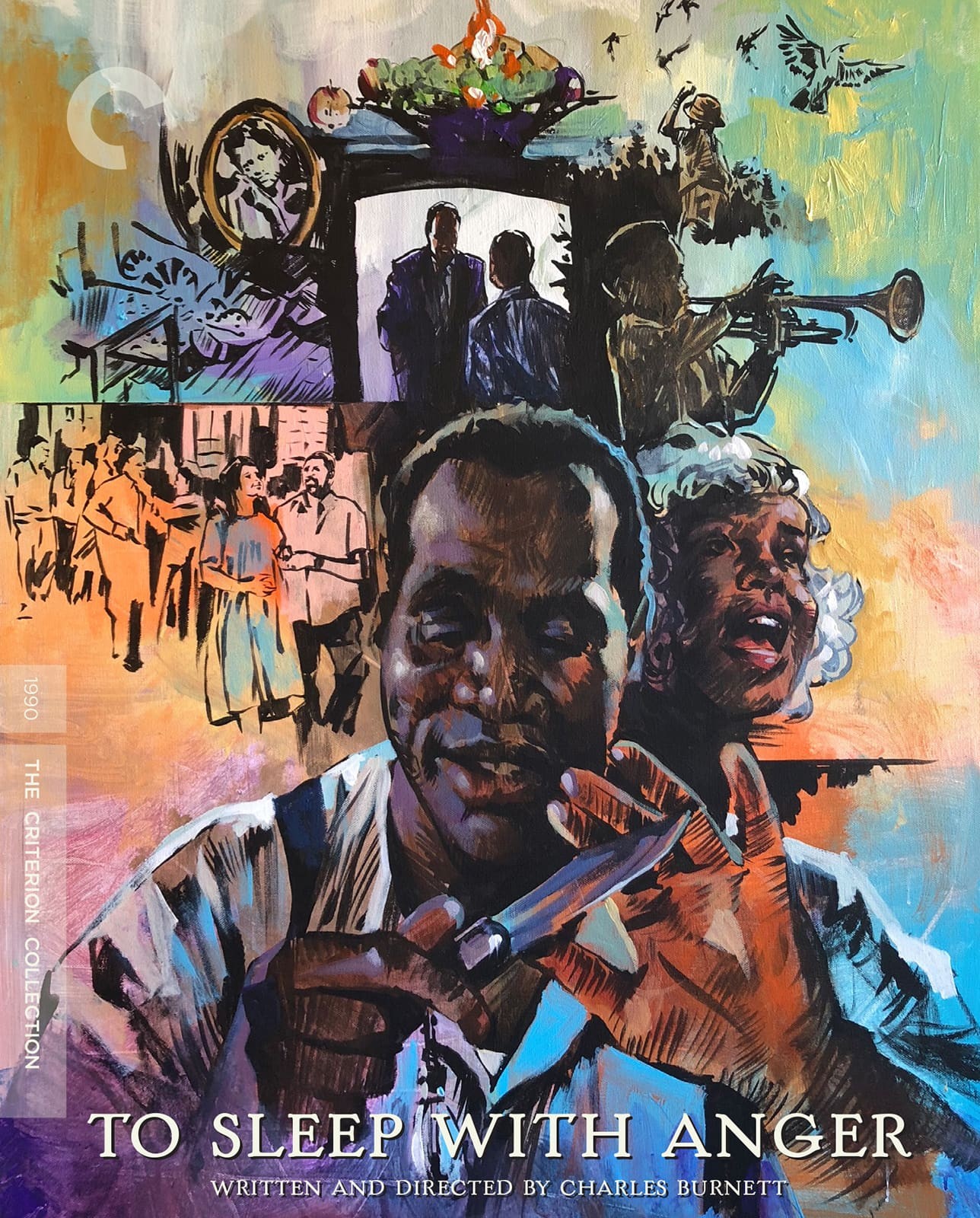
The Gideons
The story starts by sketching the lives of Gideon (Paul Butler) and Suzie (Mary Alice), a middle-class African American family of four that comes to reside in Los Angeles in the great migration from the deep south. As ostensibly peaceful as it appears, however, the conflict of the Gideon’s are already simmering at the beginning, indicated by the opening credits where Gideons’ is lighted up on fire, a seemingly allegory that suggests the internal struggles of the familial relationships and forebodes the invasion of the family’s traditional values.
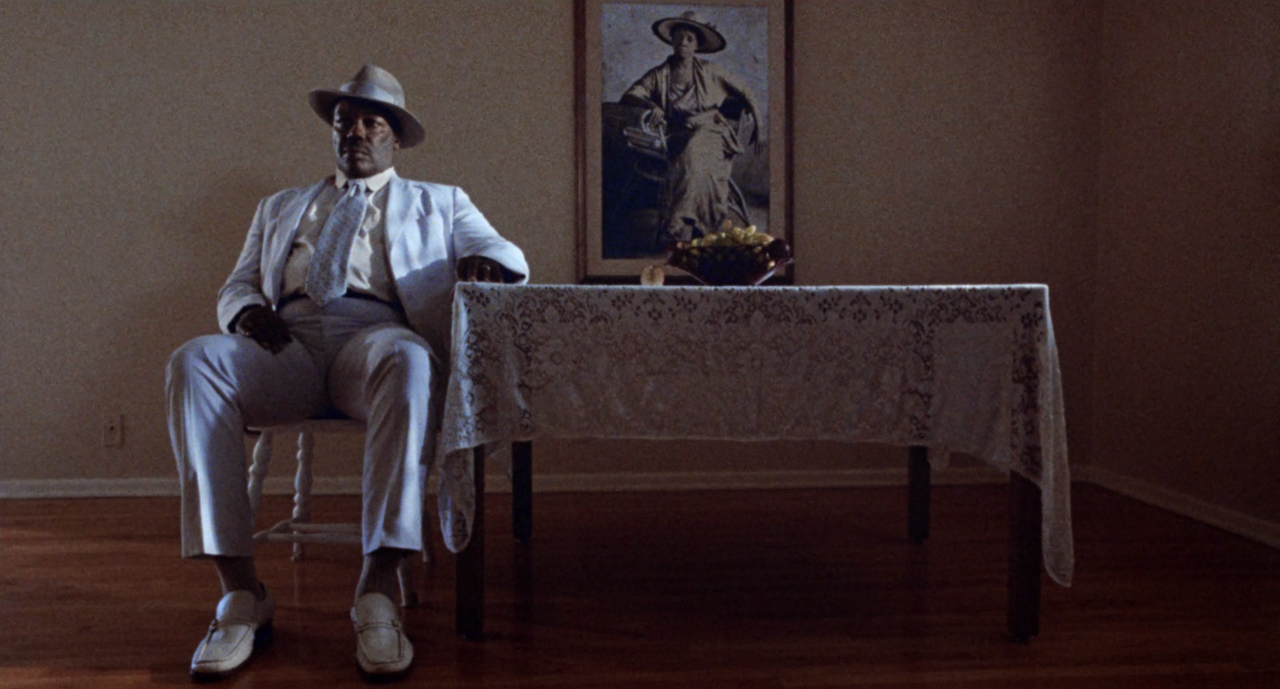
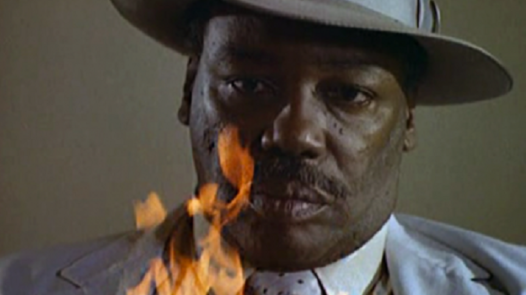
The real conflict stems from the departure of the intrinsic idea of how to run a family between the older and younger generation. On the top of the family’s hierarchy is Gideon, a pious patriarch who holds strong religious, conservative values. Although physically in Los Angeles, a lot of his behaviors inherit traditions from the deep south. He has hens and greens farmed in the backyard, a habit that signifies his identity as a southerner, and he is vexed when he loses the toby, a charm given by his great-grandmother (and we will see later the destruction of the toby presages the misfortune which befalls on the family.) Gideon also possesses a strong sense of family unity in mind as he gets exasperated by his younger son Babe Brother’s (Richard Brooks) feckless parenthood and absence from Suzie’s birthday.
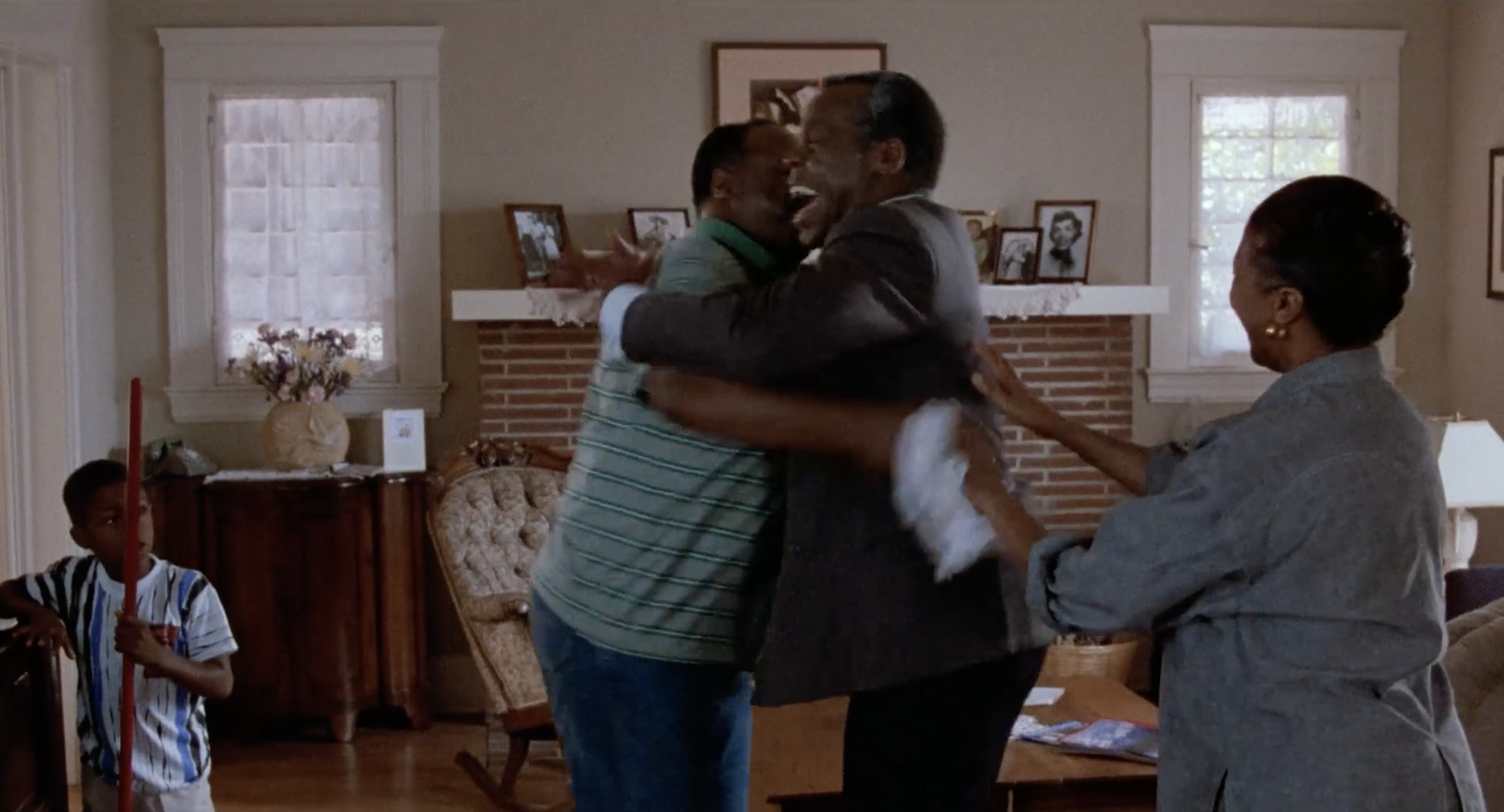
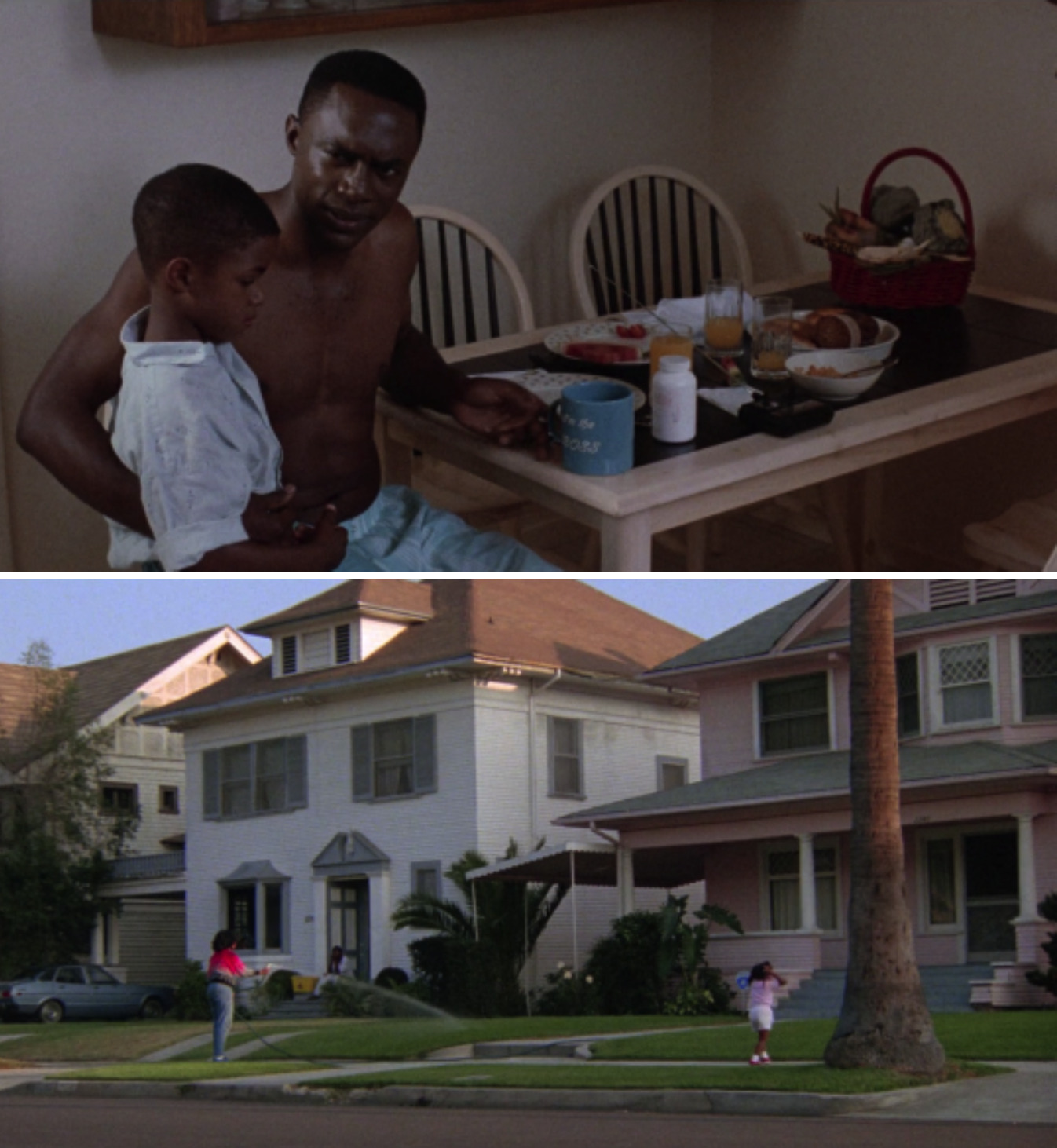
Standing against his father, Babe Brother, being caught up in America’s money fever with his ambitious wife, looks down on Gideon’s old-fashioned values. Not having realized that he is the most spoiled child, Babe Brother desperately disavows any associations with the family. He is anything but religious in that he does not ever accompany the family to church on Sunday; he eschews to take family responsibilities, like fixing the roof or feeding the hens, to alleviate the burden of his senescent parents. At the same time, Babe Brother is also (at least wants to be) an independent person. He discards the coeval African American stereotype and establishes himself as a successful, aspirational loan officer single-handedly. In the conversation with his wife Linda (Sheryl Lee Ralph) over his parenthood, Babe Brother shows contempt to his family’s past when Linda criticizes him as an indulged kid while fiercely arguing that he is no longer a “Babe” but a full-fledged adult. Hence, the primary conflict of the family centers around the dichotomy between Gideon and Babe Brother, with Junior (Carl Lumbly), the oldest son who adopts his father’s god-fearing ways, and Suzie, playing the mediator role, to conciliate the tension.
Harrys intrusion tilts the balance
The underlying hostile sentiment pervades in Gideon’s house and it is not until the unexpected visits from Harry (Danny Glover) who instigates chains of upheaval single-handedly. An old friend of Gideon’s from the earlier days back down south, Harry is welcomed by Gideon to stay in the house indefinitely. Although he carries a great mix of charm, Harry is full of tricks and duplicities. He plays a simple man while arcane phrases spilled out from his mouth; he is all about tradition, but honors himself as a modern man.
After the Gideons sets off to church, Harry wanders in the house, inspecting the family’s personal belongings and familiarizing himself with each member’s history as if he is about to take charge of the place. Later, when Harry meets Babe Brother’s family, Burnett masterfully utilizes parallel cutting to further exemplify how Harry’s arrival precipitates the family’s latent conflict. As Harry’s nostalgic yet mythical southern folklores almost instantly mesmerize Babe Brother about the South, Burnett interpolates shots of the on-going baptism of Gideon’s grandchildren in the church. In one shot, the powerful, righteous gospel music reverberates around the chapel while in others, zany, apocryphal folktales perpetuate in Babe Brother’s mind. Such juxtaposition alludes to the exacerbating schism in the family, foreboding a series of inauspicious incidents as the film continues.
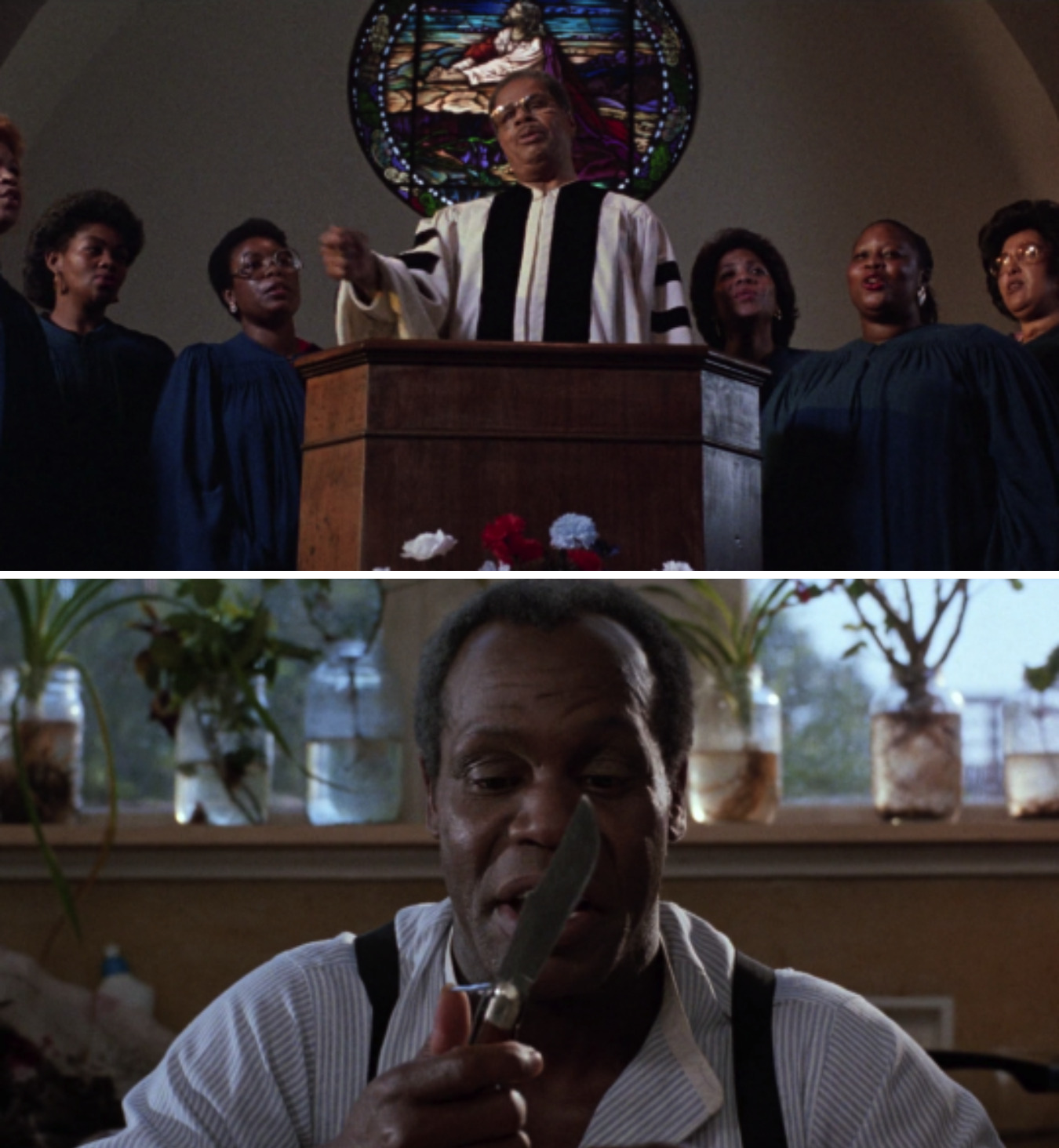
Like an emissary of the devil, Harry brings nothing but bad luck to the family, and things happen circumstantially to amplify the heretical, ominous vibe that comes with him. Linda picks up a card that seems like a sign of misfortune after Harry finishes his uncanny story ; the baby insides Pat (Vonetta McKee) kicks twice when Harry is about to greet her; most significantly, Gideon falls into a coma after an exhausting walk with Harry that reminds him of the affliction as an African American down south. Notwithstanding the turmoil that he spawns, Harry starts to take over the family as Gideon is fully disabled. One of the most disturbing scenes in the film is when Gideon finds out about his health issue the next morning. The red kettle, Gideon’s red pajama, and the red apple that Harry’s enjoying together emanate the menacing predicament that the family is about to face. At the moment that Suzie urges Gideon to go rest, worrying about his unstable health state, the scene cuts to Harry while he is slicing an apple to ingest using his knife, a symbol of threatened violence as Harry eviscerates the prey (Gideon) in front, tearing the family apart.
More about Harrys personality
Harry is a peculiar person not only because of the demonic character that he embodies, but in that he represents the deep south in certain ways. Like a missionary, Black culture and southern superstitions come along when Harry first appears at the Gideon’s front door. Gideon and Suzie’s ebullient greeting does not dissipate Harry’s conservative beliefs. When Sunny (DeVaugh Walter Nixon), Gideon’s grandson, accidentally hits him with a broom, Harry is extremely offended since, according to the old tradition, that means bad luck. Forthwith, he spits in the broom and sprinkles salt over the shoulder as a resort to cast the misfortune away.
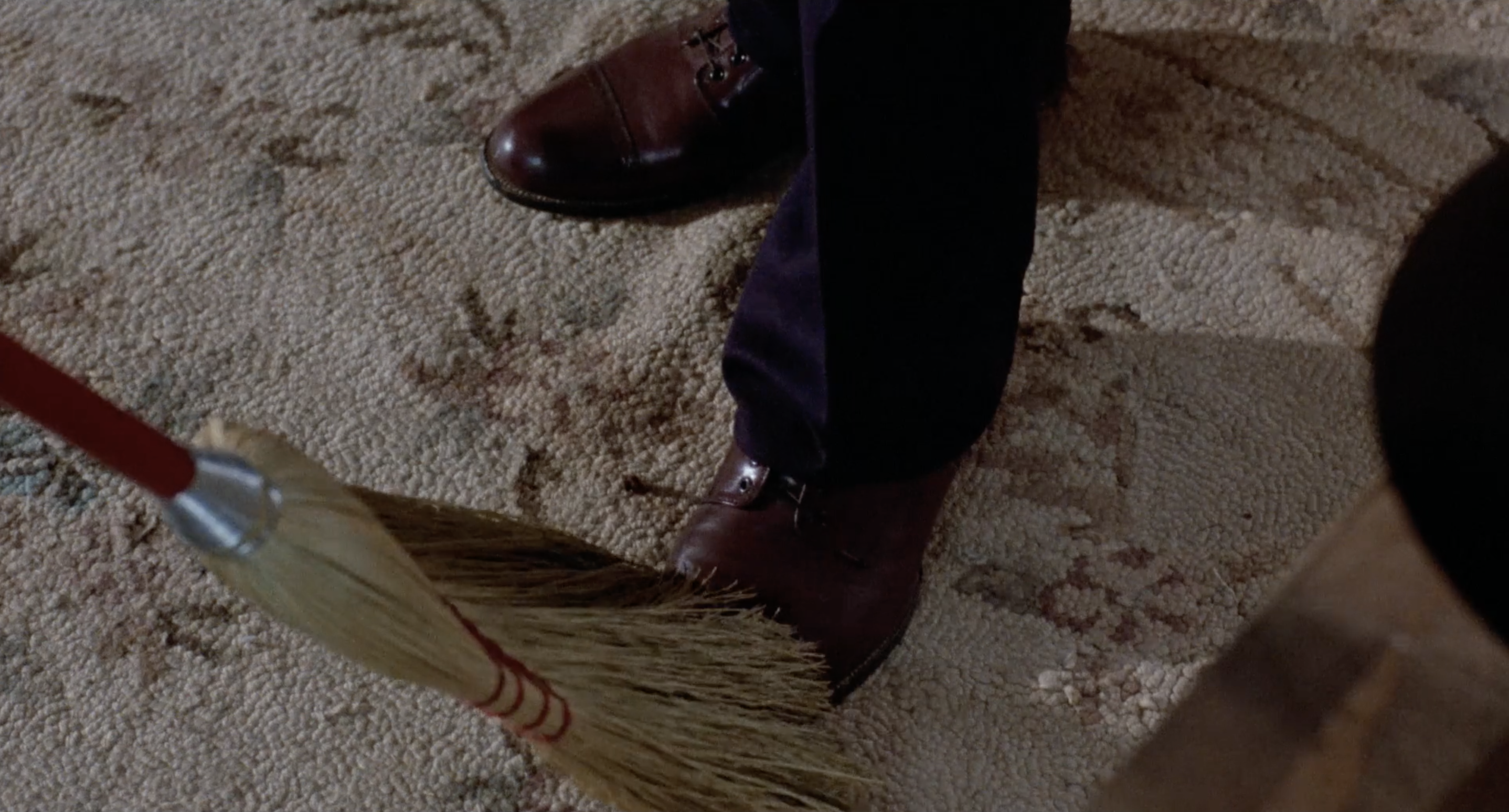
What’s more, Harry does not discard these morbid values but instead uses them to his advantage. During the party held by the Gideon’s, the corn liquor shared, the request of Hattie (Ethel Ayler) to sing a song from the old days, and the petrifying story of Emory and Hooker told are all tricks that Harry plays to rekindles people’s enthusiasm in memory of the South. Under his sway, Harry’s old buddies begin to imbibe the heterodox values that are instilled. When Gideon is on the verge of death, Okra’s (Davis Roberts) proposal ought to be the most ludicrous moment in the film. Okra has long been craved for Suzie. Seeing this time that Gideon’s malady might give him a chance to win over Suzie, he blatantly expresses his adoration to her, quoting the policy that she should be taken care of by one of Gideon’s lodge brothers and asking if he could be the first in line.
By conscientiously incorporating each character with depth and richness, Burnett saturates To Sleep with Anger, a seemingly parable, with warring elements of African American traditions including progressive ideas versus old religions and rural idiosyncrasy versus urban respectability, depicting so vividly the destruction and the reconstruction of Gideon and Suzie’s family.